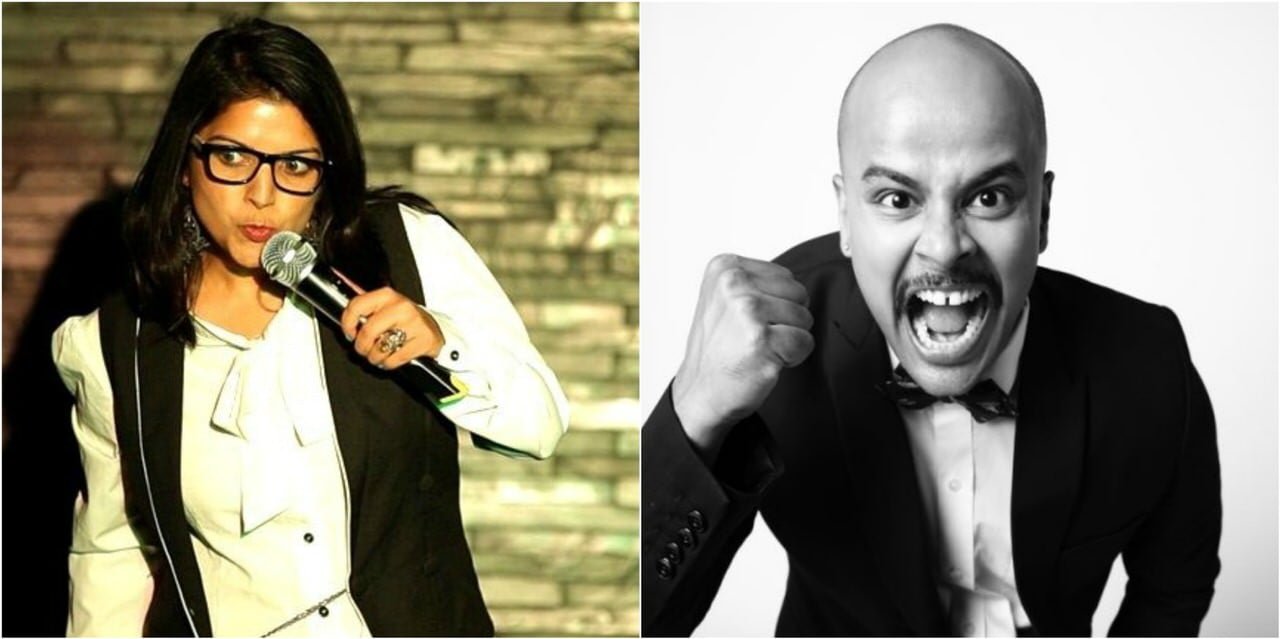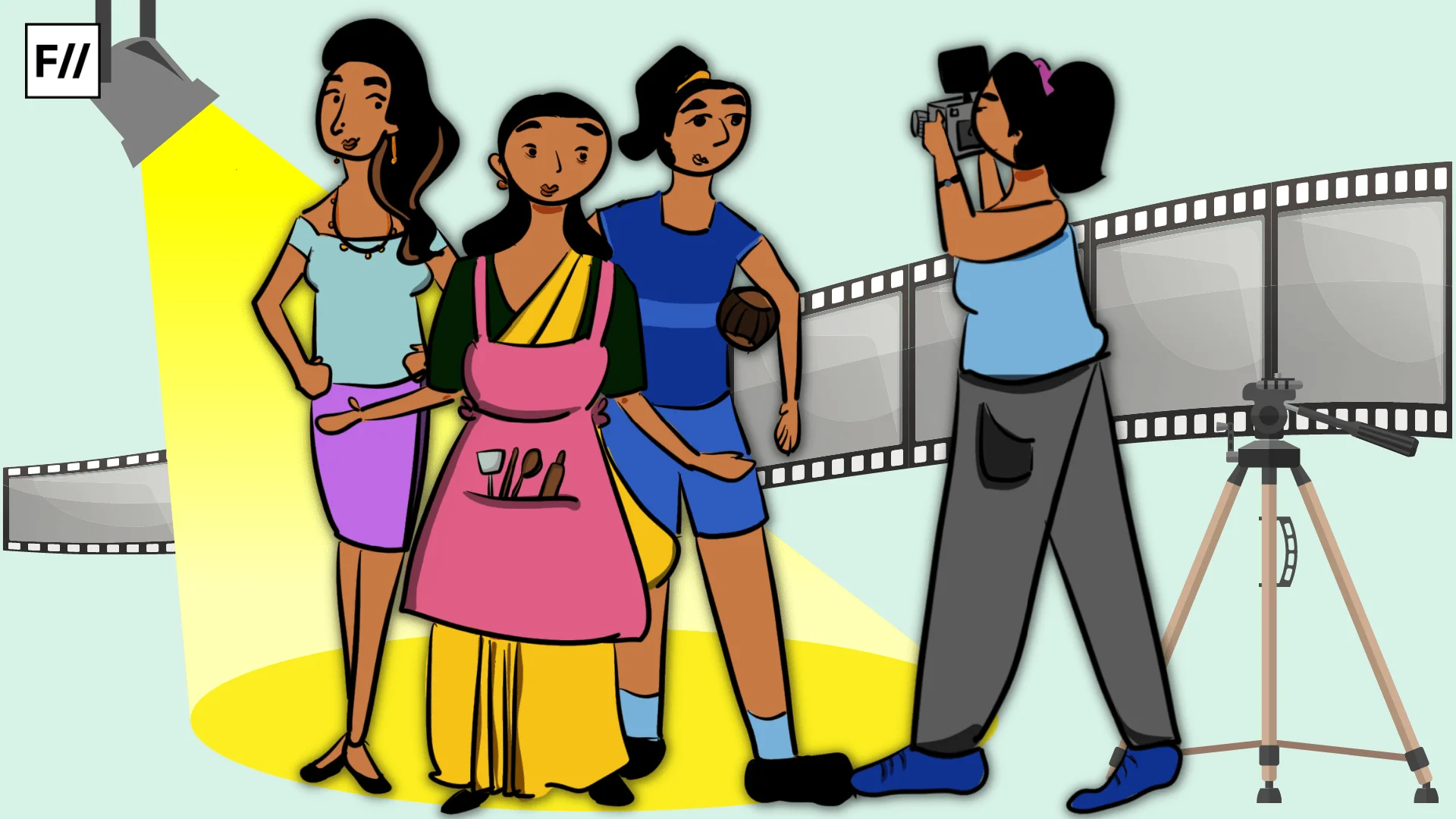Guest Post by Anuradha Sridhar
Think of activities that demand confidence, making audience members laugh and making money while doing so, and stand-up comedy ranks pretty high on that list. Now think of activities that demand asking tough questions and making audience members think. Stand-up comedy can do that as well. Finally, think of activities that talk about feminism in a chuckle-worthy manner. Unlike with other f-words, stand-up comedy and feminism don’t go together, do they?
I have been an audience member in stand-up comedy shows that have made fun of my corporate career and my age group (I am well into my thirties), and the shows taught me how to view myself through the eyes of those who are different from me and laugh at the absurdity of it all. They also helped me think through why I find it difficult to watch people being picked on at these shows – it feels like bullying, no?
Also Read: India’s Female Comedians Are A Badass And Much-Needed Counter To Sexist Humour
I must admit that stand-up comedians scare me with their (often) acerbic tongues, especially when the audience members do not have as much freedom to retort! Their show, their physical space and all that. Where does this leave the paying public? Ranting on social media, I guess.
When it comes to feminism, daily life already provides enough material to view myself through the eyes of men and patriarchy – and I do make use of humour to divert myself when the going gets tough. Hence, I have thought about whether feminism can benefit from stand-up comedy. Thus, in June 2017, it is with interest that I followed the case of Aditi Mittal who was signed-up for a show by Netflix. Earlier, she had appeared on a panel discussion on sexism in the Indian comedy industry, and was the only female comic in the panel. The irony of it all, and the reality of it all, both struck hard.
In an article on the panel discussion, when I saw Radhika Vaz’s tweet included, it reminded me of my twitter response to her from last year. She had said, “The next bitch who says she isn’t a feminist needs to pay dowry and perform Sati. And be married off at age 11. And no school for you.”
The next bitch who says she isn’t a feminist needs to pay dowry and then perform sati. And be married off at age 11. And no school for you.
— radhika vaz (@radvaz) May 24, 2016
I knew that this was supposed to be dark humour, and yet I didn’t find the tweet funny. I don’t know if Radhika has been denied education, married off as a child or has paid dowry – it isn’t clear if she is talking about all of this from personal experience. The casual usage of the word ‘bitch’ and the archaic ‘Sati’ in the same tweet meant issues were being trivialised.
Was Sati a laughing matter, after all? Bitches, on the other hand, need positive associations – why restrict the loyalty attributes to (male) dogs? Top dogs are invariably men, isn’t it? Mostly, the unfunny part was the consistent reference to holy matrimony and how it wasn’t being made fun of, unlike darker realities like dowry and denial of education for girl children.
I tweeted to Radhika, and my irritation was visible to anybody who read it. While it helped release the emotion, it didn’t do much apart from that.
“Assumption being the husband will be dead before her, and her parents and those around her are caustic and silly as this suggests?”
Assumption being the husband will be dead before her, and her parents and those around her are caustic and silly as this suggests?
— Anuradha Sridhar (@anuradhasridhar) May 25, 2016
Then arrived Kangana Ranaut on the stand-up comedy scene with the video from AIB, who is no stranger to controversy. Well, both Kangana and AIB are no strangers to controversy. Holy matrimony, however, is anything but controversial in India. See what Atul Khatri has to say on this.
* Watches Kangana Ranaut on Aap Ki Adalat late last night
* Touches wife’s feet while she is asleep
* Deletes Tinder— Atul Khatri (@one_by_two) September 4, 2017
Sigh.
Are there no other ways to address issues that affect women, without making them cringe with jokes at their expense? After all, there are few sights as beautiful as watching a group of strangers laugh heartily and almost spontaneously on social issues that are larger than themselves, without feeling victimised for their lot. Search for community laughs, get into lonely fights – this doesn’t sound like a good package deal on the whole.
I then came across the work of American comedian Jeremy McLellan, and he raised the issue of the gender pay gap in one of his videos. The theme is universal – women are indeed paid less than men in India as well.
That’s when it struck me. Unlike other forms of comedy, stand-up comedy offers its practitioners the chance to practice their acts in advance, and hence think through what they want to convey to their audience. It is not as if stand-up comedians are averse to female audience members – women do laugh more readily at jokes cracked by men, or so I am told. I am waiting for the day when a feminist stand-up comedian owns up to the tag, and somehow makes money in the process. The laughs will follow. Or must they lead?
At this point, waiting for a feminist stand-up comedy is turning into the wait for Godot.
Also Read: The Auratnaak Comedy Show: Pakistani Women Roast Patriarchy On Stage
Anuradha Sridhar believes in the power of written words and human connections, and is often on the lookout for ways to bring the two together. Over the years, reading and watching tennis continue to capture her attention. She is a post graduate from IIM, Indore and presently works with Ernst & Young. She can be followed on LinkedIn and Twitter.
About the author(s)
Guest Writers are writers who occasionally write on FII.





Thank you for this article. Stand up comedy is a very powerful medium that has yet figured out the (undoubtedly still vague) line between offensive and acceptable humour. And audience bullying is distasteful, there exists such a thing as contempt for audience. They need to be mindful of this before letting their sarcasm get the better of them and lose their fan base.
Well said, Marissa – thank you for writing in 🙂